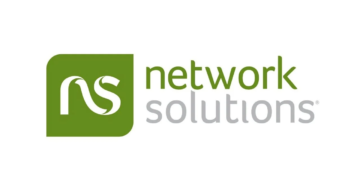Ethiopia’s economy is booming, offering exciting opportunities for entrepreneurs. With a projected GDP growth rate of 6-8%, the country presents a thriving market for foreign investors. Setting up a company here takes an average of 3-4 weeks, making it an attractive destination for expansion.
Foreign investors must consider key factors before launching operations. A $200k minimum investment applies, though joint ventures may qualify for exemptions. Choosing the right business structure—whether a sole proprietorship, PLC, or branch—impacts liability and taxation.
Registration involves multiple steps, from name reservation to tax compliance. Sector-specific licenses may also be required. Once operational, companies must handle VAT registration and employee tax management.
Key Takeaways
- Ethiopia’s economy is growing rapidly, offering strong potential.
- Company setup typically takes 3-4 weeks.
- Foreign investors face a $200k minimum capital requirement.
- Business structure choice affects legal and financial obligations.
- Post-registration compliance includes VAT and employee taxes.
Understanding Business Structures in Ethiopia
Ethiopia provides diverse corporate structures tailored for different investor needs. Each entity type affects liability, taxation, and operational scope. Foreign investors should evaluate options based on capital, sector rules, and long-term goals.
Private Limited Company (PLC)
A private limited company suits small to mid-sized ventures. It requires two shareholders and a minimum $200,000 capital. Shareholders enjoy limited liability, protecting personal assets.
PLCs need one director and file monthly tax returns. Audits are mandatory for firms with over 20 shareholders. This structure balances flexibility and legal protection.
Public Share Company (SC)
Share companies cater to larger enterprises. Five shareholders and three directors are mandatory. Like PLCs, they require $200,000 in capital but face a 30% corporate tax rate.
SCs must publish financial reports and pay a 10% dividend tax. They suit businesses planning public fundraising or expansions.
Branch Offices and Liaison Entities
Branch offices replicate parent companies but carry unlimited liability. They must submit original incorporation documents. No separate legal status exists.
Liaison offices handle marketing but cannot sign sales contracts. Approval from the Ministry of Trade is required. These entities avoid profit taxes but face operational limits.
Legal Requirements for Business Registration
Ethiopia’s legal framework sets clear guidelines for foreign investors. Compliance ensures smooth operations and avoids penalties. Key rules cover capital thresholds, documentation, and sector-specific ownership.

Minimum Capital and Ownership Rules
Foreign investors must meet strict capital requirements. Solo ventures need $200,000, while joint ventures require $150,000. Architecture and engineering firms have lower thresholds: $100,000 (solo) and $50,000 (joint).
Certain sectors restrict foreign ownership entirely. These include banking, media, and domestic transport. Always verify industry rules before finalizing investment plans.
Documentation and Shareholder Requirements
Registration demands authenticated paperwork. PLCs submit a Memorandum of Association and Articles of Association. Shareholder IDs and lease agreements are mandatory.
Company managers undergo biometric registration. Documents must be notarized by the DARA agency. Ethiopian Embassy authentication applies to foreign-submitted papers.
Ownership limits exist in regulated industries like healthcare and freight forwarding. Review these requirements early to avoid delays.
How to Start a Business in Ethiopia: The Registration Process
Launching operations in Ethiopia requires navigating a structured process. The government mandates clear steps to ensure compliance and operational legitimacy. Below is a breakdown of key phases.
Step 1: Company Name Reservation
Submit three name options to the Ministry Trade bureau. Physical form submissions are mandatory at sub-city offices. Approval averages five weeks.
Names are checked for duplicates. Once cleared, a unique identifier is assigned. This reserves the name for 30 days.
Step 2: Memorandum and Article of Association
Draft and authenticate the MoA with a notary. For leased addresses, landlords must be present. Two shareholders and directors of any nationality are required.
Submit the MoA alongside ID proofs and lease agreements. Notarization by DARA or Ethiopian embassies is essential for foreign documents.
Step 3: Commercial Registration and Licensing
Apply for a registration certificate with the MoA, address proof, and TIN. Newspaper publication is rarely enforced but legally required.
The certificate is valid for one year. Trade licenses must be obtained within this period. Biometric registration is mandatory for TIN applications.
Timeline: Full registration takes 5–7 weeks. Delays occur if documents are incomplete or authentication is pending.
Tax and Financial Obligations for Ethiopian Businesses
Managing financial responsibilities is crucial for enterprises operating in Ethiopia. The government enforces strict tax laws to ensure compliance and revenue collection. Companies must navigate corporate taxes, VAT, and payroll deductions to avoid penalties.

Corporate Tax and VAT Registration
Ethiopia imposes a 30% corporate tax on annual profits. Mining firms enjoy a reduced 25% rate. Monthly filings for withholding tax (WHT) apply at 2% for goods and services.
The VAT threshold starts at 1 million ETB in annual turnover. Businesses exceeding this must register and charge 15% VAT. Exemptions exist for education and healthcare sectors.
Smaller enterprises may opt for turnover tax (TOT) instead. Rates range from 2%–10%, depending on revenue brackets. Government-approved cash registers are mandatory for invoicing.
Employee Taxes and Pension Contributions
Employers handle payroll deductions for income tax and pensions. Progressive rates apply, with top earners paying 35%. Monthly filings ensure compliance.
Pension contributions split between staff and employers. Employees contribute 7% of salaries, while firms add 11%. Late payments incur fines.
All businesses need a TIN for transactions. Annual profit declarations accompany monthly VAT/WHT submissions. Proper record-keeping simplifies audits.
Operational Licenses and Compliance
Ethiopia maintains strict operational requirements for enterprises across industries. Companies must secure proper licenses and adhere to compliance protocols to avoid disruptions. The framework varies by sector, with general and specialized permits.
Trade License Application
General trade licenses cover retail and wholesale activities. Sector-specific permits apply to healthcare, construction, and logistics. Applications require tax clearance and proof of address.
Technical services like engineering need competency certificates. Inspections verify equipment and staff qualifications. Delays occur if documents are incomplete.
Renewals and Ongoing Compliance
Licenses require biannual renewals with updated tax records. The government mandates on-site checks for high-risk sectors. Non-compliance risks operational suspension.
Ancillary rules include custom seals for official documents. Invoice approvals ensure tax transparency. Stay proactive to navigate this process smoothly.
Conclusion
Ethiopia’s expanding market presents lucrative prospects for ventures. The country’s growing economy and clear legal framework simplify entry for global investors.
Success hinges on local compliance partners and streamlined payroll systems. Emerging sectors like manufacturing and tech amplify investment potential.
Engage professional services for tax and VAT management. Remember the $200k capital rule and sector-specific ownership limits.
With strategic planning, Ethiopia offers a dynamic landscape for sustainable business growth.
FAQ
What are the main business structures available in Ethiopia?
Ethiopia offers three primary business entities: Private Limited Company (PLC), Public Share Company (SC), and Branch Offices for foreign investors. Each has distinct capital requirements and liability rules.
What is the minimum share capital for a Private Limited Company?
A PLC requires ETB 15,000 (approx. 5) as minimum capital. Share Companies need at least ETB 50,000 (approx. 5), while foreign-owned businesses may face higher thresholds.
How long does the registration process take?
Typically 4–6 weeks, depending on document verification. Name reservation takes 1–3 days, while commercial licensing and TIN issuance require 2–4 weeks.
What documents are needed for company registration?
Essential paperwork includes a Memorandum of Association, Article of Association, passport copies of directors, and proof of capital deposit in a local bank.
Are foreign investors allowed to own 100% of a business?
Yes, except in sectors like banking, media, or transport, where joint ventures with Ethiopian nationals are mandatory under Investment Proclamation No. 1180/2020.
What taxes apply to registered businesses?
Companies pay 30% corporate tax, 15% VAT (if revenue exceeds ETB 1M/year), and 2% turnover tax. Employee payroll taxes and pension contributions also apply.
Is a physical office required for registration?
Yes. The Ministry of Trade mandates a lease agreement or property deed as proof of a registered office address before issuing a business license.
How often must business licenses be renewed?
Trade licenses require annual renewal, with fees based on the company’s sector and capital. Late renewals incur penalties.
Can a foreign company operate without a local entity?
No. Foreign firms must establish a branch office or liaison entity, both requiring approval from the Ethiopian Investment Commission (EIC).
What is the penalty for non-compliance with tax filings?
Late income tax submissions attract a 10% monthly penalty on dues. Persistent violations may lead to license suspension or legal action.






